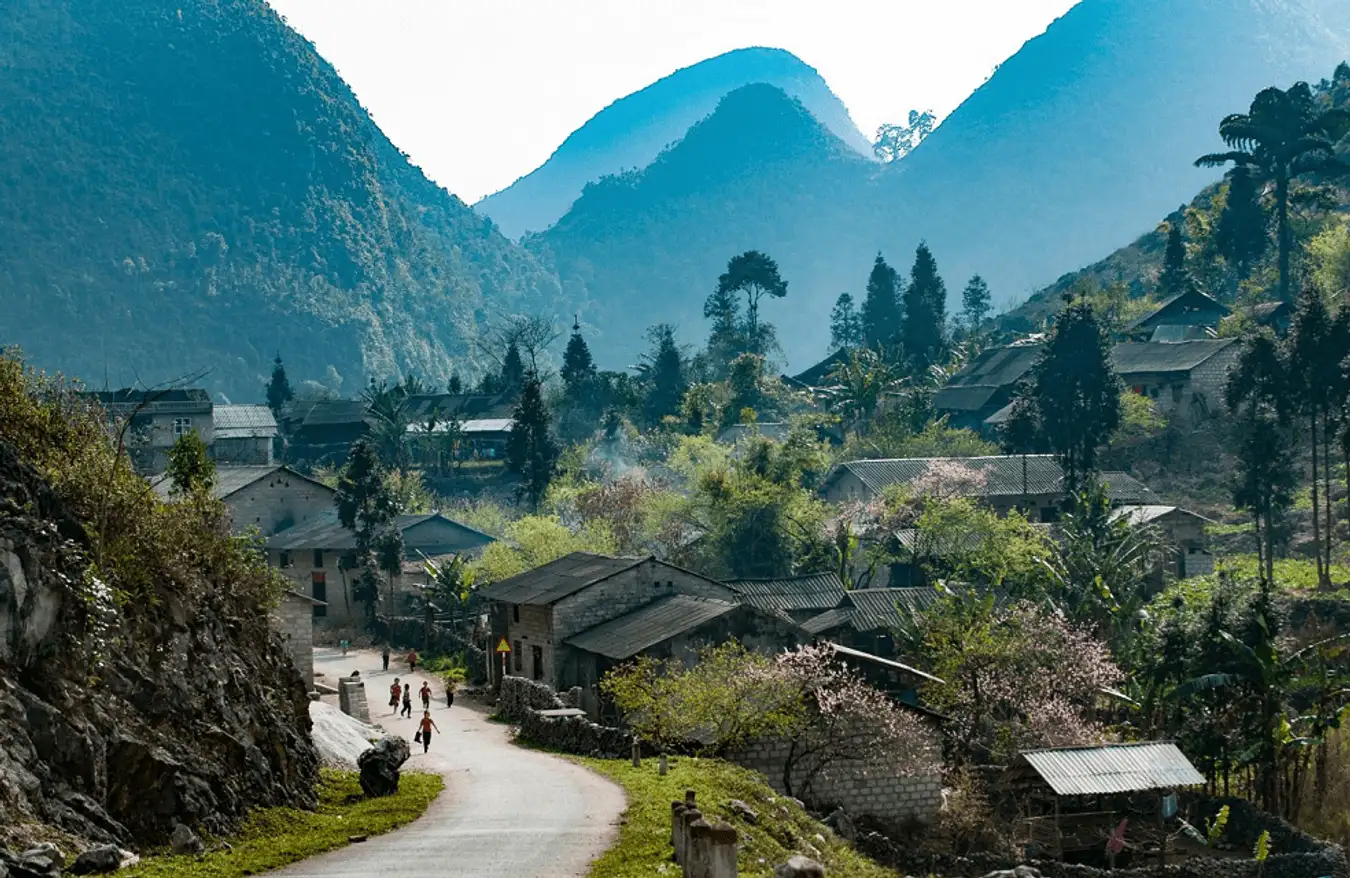How to respect local customs & traditions in Ha Giang
Ha Giang is not only known for its breathtaking landscapes but also for its diverse ethnic communities and rich cultural traditions. Travelers visiting this northern province should take the time to understand and respect the customs of the local people. By doing so, you will enhance your travel experience and foster positive interactions with the communities you encounter. Here’s a guide to help you navigate Ha Giang travel with cultural sensitivity.
Dressing Modestly in Ethnic Villages
Many of the ethnic groups in Ha Giang, such as the Hmong, Tay, and Dao people, have conservative dress customs. When visiting villages, markets, or religious sites, it is best to wear modest clothing that covers your shoulders and knees. Ha Giang weather can vary, so bringing lightweight yet respectful attire is essential, especially if you’re riding along the loop and staying in Ha Giang Loop hostels.

Seeking Permission Before Taking Photos
Photography is a great way to capture the beauty of Ha Giang, but it is important to respect the privacy of local people. Before taking pictures of individuals, especially elders and children, always ask for permission. A simple smile and gesture can go a long way in showing respect. In some areas, photography may be restricted due to spiritual or cultural beliefs, so always be mindful of the surroundings.
Greeting Locals with Respect
Each ethnic group in Ha Giang has its own way of greeting, but a friendly nod or a slight bow is usually a safe approach. Some communities may not be accustomed to handshakes, so avoid initiating physical contact unless locals do so first. Learning a few simple Vietnamese phrases, such as “Xin chào” (Hello) and “Cảm ơn” (Thank you), can also help build rapport with the people you meet during your Ha Giang travel experience.

Being Mindful of Sacred Sites and Rituals
Many villages have sacred sites, such as communal houses, temples, and ancestral altars. When visiting these places, dress appropriately and behave respectfully. Avoid touching ritual objects or interrupting ceremonies. If you are invited to observe a local festival, follow the guidance of your hosts and do not disturb traditional performances or religious practices.
Showing Courtesy When Invited into a Home
Hospitality is an important part of Ha Giang’s culture, and you may be invited into a local home for tea or a meal. If this happens, remove your shoes before entering and accept any food or drink with both hands as a sign of gratitude. It is considered polite to take at least a small sip or bite, even if you are not hungry. Be aware that alcohol, particularly corn wine, is often offered, so know your limits and decline respectfully if necessary.

Bargaining with Respect at Local Markets
Visiting traditional markets is a highlight of Ha Giang travel, where you can buy handmade crafts, textiles, and fresh produce. Bargaining is common, but it should be done with a friendly attitude. Avoid aggressive haggling, as prices are often fair, and vendors rely on their earnings to support their families. At famous markets like Dong Van or Meo Vac, respecting local business practices contributes to a positive experience.
Avoiding Public Displays of Affection
Public displays of affection, such as hugging and kissing, are uncommon in Ha Giang’s rural areas. While it may be normal for travelers, it can make locals uncomfortable. If you are traveling as a couple, it’s best to keep physical contact minimal in public spaces, especially in traditional villages.
Being Considerate When Riding the Ha Giang Loop
The Ha Giang Loop is a thrilling adventure, but it’s important to ride with awareness and respect. Many roads pass through small villages where children play and animals roam freely. Slow down when riding through these areas, avoid loud honking, and respect local road rules. Staying in Ha Giang Loop hostels can also give you opportunities to learn more about the customs and expectations of different communities.

Supporting Local Businesses and Artisans
One of the best ways to show respect for Ha Giang’s traditions is by supporting local artisans and businesses. Purchasing handmade textiles, locally grown tea, or traditional crafts directly from villagers helps sustain their economy and preserves their heritage. Many families rely on tourism, so being a responsible traveler makes a meaningful impact.
Leaving No Trace and Protecting the Environment
Ha Giang’s stunning landscapes are a key reason why travelers visit, but preserving the environment is just as important as respecting its people. Always dispose of trash properly, avoid using plastic bags, and respect local wildlife. Whether hiking, camping, or staying at Ha Giang Loop hostels, leaving no trace ensures that future visitors can enjoy the beauty of this region just as you have.
Conclusion
Respecting local customs and traditions in Ha Giang enhances not only your travel experience but also the connections you make along the way. By dressing modestly, being mindful of cultural practices, and supporting local communities, you contribute to responsible tourism. Whether you’re exploring Ha Giang weather’s diverse seasons or riding the Ha Giang Loop, being a respectful traveler makes all the difference.
